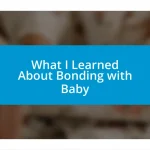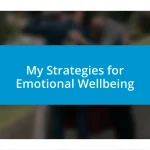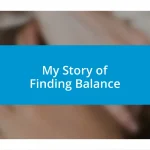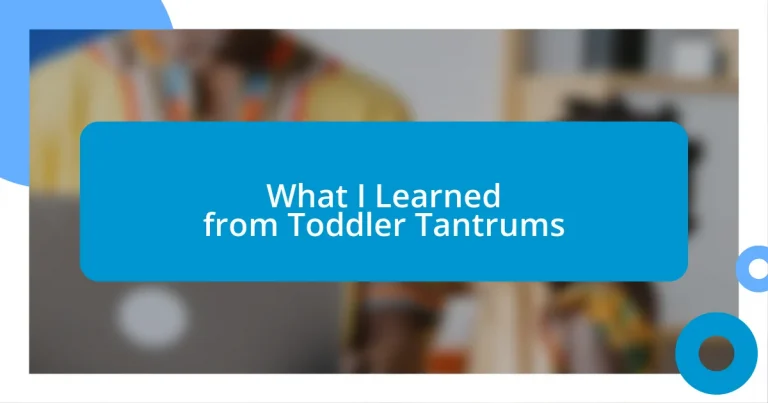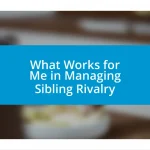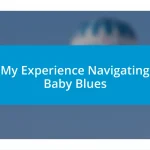Key takeaways:
- Toddler tantrums reflect their struggle for independence and limited communication skills, highlighting their intense emotions and need for support.
- Common triggers include hunger, fatigue, overstimulation, frustration, and changes in routine, which can help parents manage and prevent outbursts.
- Tantrums present opportunities for emotional connection, teaching moments, and personal growth, emphasizing the importance of patience and self-awareness in parenting.
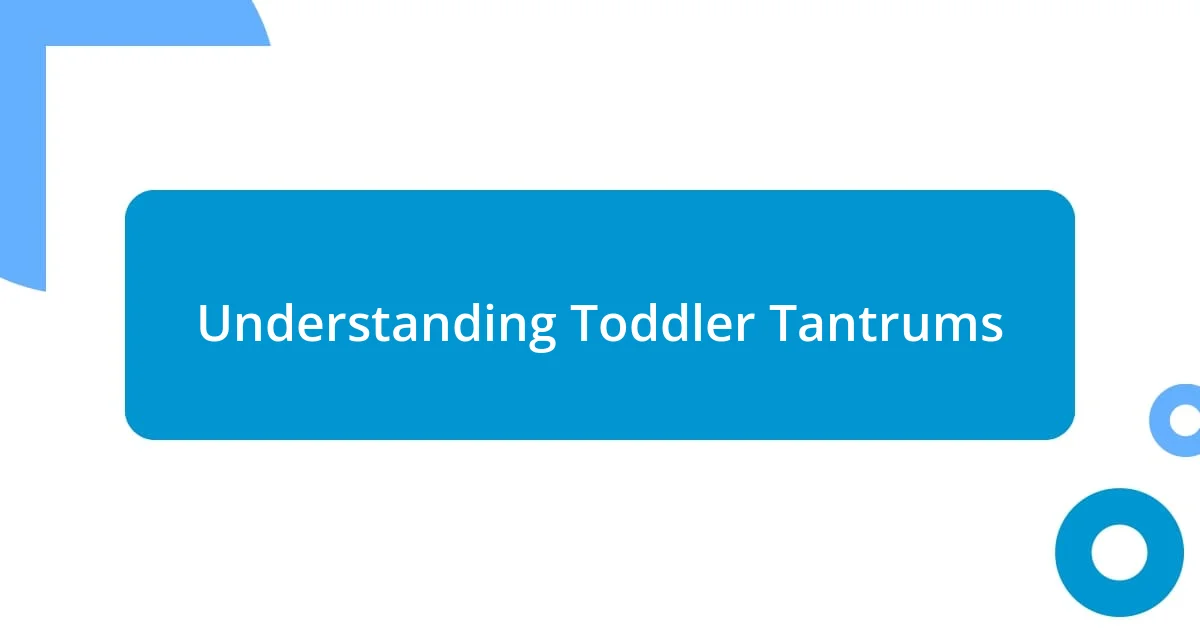
Understanding Toddler Tantrums
It’s astonishing how quickly toddlers can swing from giggles to screams in a matter of moments. I remember a day at the park when my little one was blissfully playing, and out of the blue, a tantrum erupted over wanting to stay just five more minutes. This reminded me that their emotions are often intense and real, even if it seems trivial to us.
These outbursts are a natural part of toddler development, as they’re struggling with their ever-growing independence while grappling with limited communication skills. Have you ever wished you had a manual for reading their emotions? It can be baffling to decipher if they’re upset because of hunger, tiredness, or just sheer frustration. That moment when I finally understood that their world is overwhelming—filled with desires they can’t articulate—opened my eyes to their small but significant battles.
What struck me the most is their inability to regulate those emotions. I often find myself empathizing with them; after all, haven’t we all felt frustrated when we couldn’t convey our thoughts? In those moments, I try to remind myself that I’m not just managing a tantrum; I’m witnessing a little one learning about their feelings and boundaries for the first time.
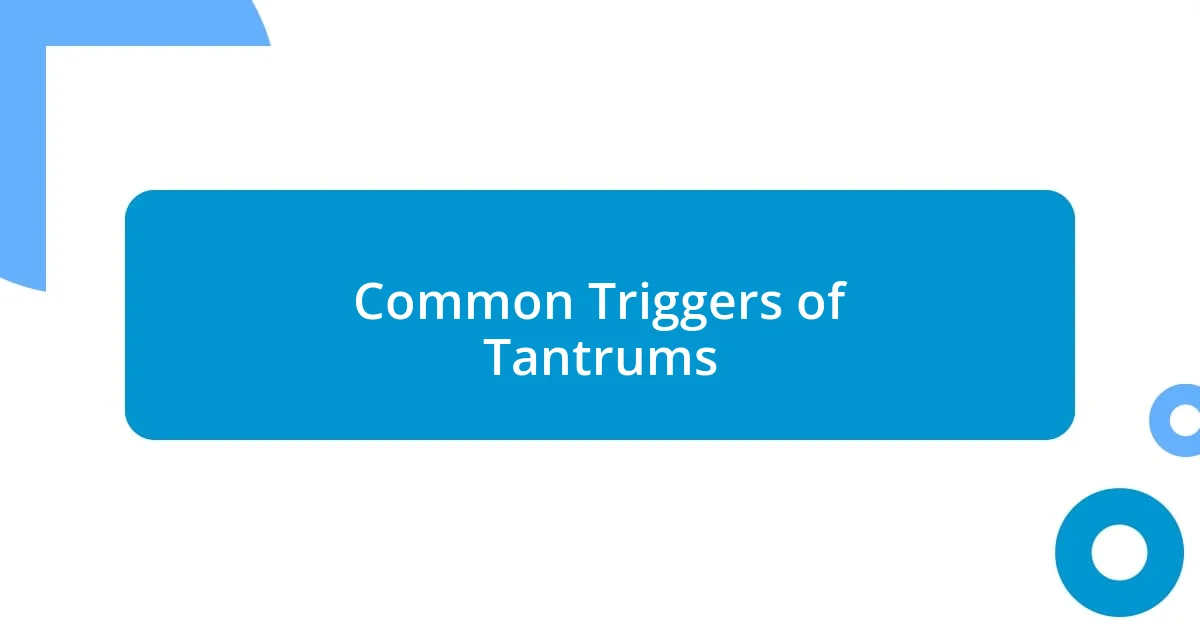
Common Triggers of Tantrums
One of the main culprits behind toddler tantrums is the loss of control they often feel. I remember a grocery trip when my toddler suddenly lost it because I wouldn’t let him push the cart. The sheer frustration on his face made me realize that even the smallest restrictions can send them spiraling. It’s fascinating how something as simple as not getting to choose their snack can hit like a tidal wave of emotion.
Common triggers of tantrums include:
- Hunger: An empty stomach can turn a sweet angel into a little monster.
- Fatigue: Missed nap times often lead to meltdowns; it’s like watching a balloon slowly deflate.
- Overstimulation: Loud noises and crowded places can overwhelm them, throwing off their balance.
- Frustration: Whether it’s a puzzle piece that won’t fit or a favorite toy stuck under the couch, this can ignite a fire of emotions.
- Changes in routine: Any disruption, like traveling or different caregivers, can lead to their emotional upheaval.
It’s incredible how sensitive they are to their environments, and understanding these triggers can make managing their outbursts feel a bit more manageable.
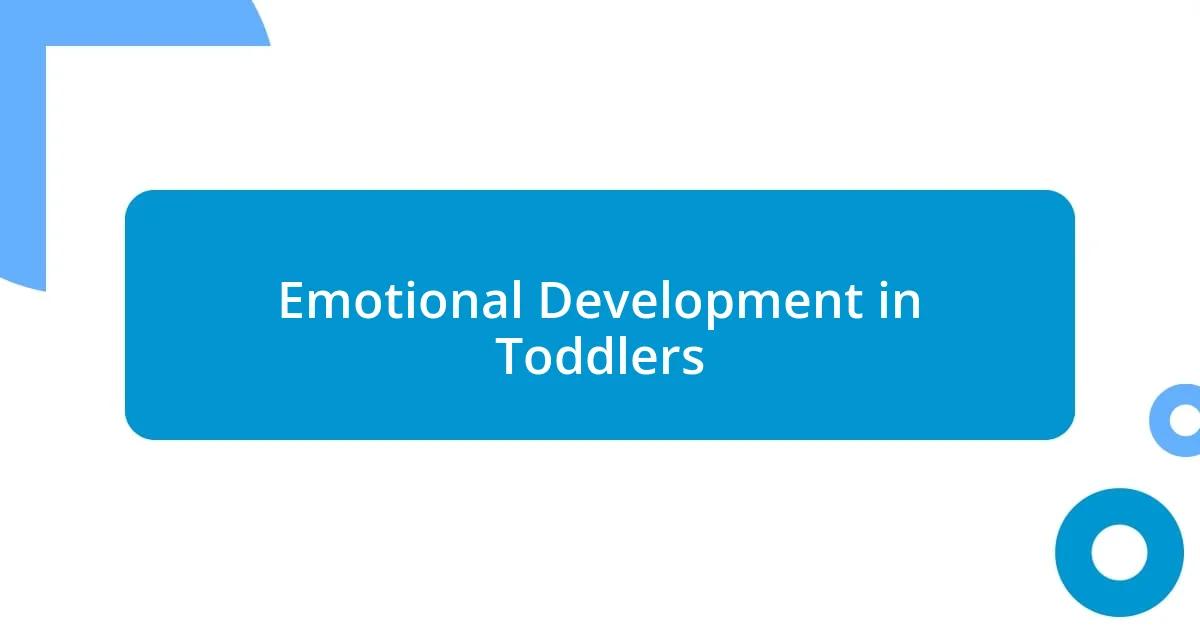
Emotional Development in Toddlers
One of the most striking aspects of emotional development in toddlers is their growing self-awareness. I vividly remember when my child first pointed out their feelings, saying, “I’m sad!” after a playdate ended. That simple expression caught me off guard, highlighting how even at a young age, they begin to recognize and label their emotions. It’s a fascinating milestone when they start differentiating between happy, sad, and angry, yet it can be overwhelming as they experience these feelings for the first time.
As they navigate this emotional landscape, toddlers often imitate the reactions of those around them. I once noticed my child mimicking my frustration during a frustrating moment while trying to fix a toy. It was almost humorous, yet it served as a reminder of how they absorb our emotional cues. This imitation is a key part of their development, as they learn to understand social norms and how to respond to their own feelings and those of others.
Moreover, the ability to express emotions positively and negatively plays a vital role in their development. I discovered this when my little one unexpectedly approached me with a crumpled drawing, proudly declaring they were “really happy” to share it. It struck me then that even amidst the chaos of tantrums, they are learning to communicate joy, disappointment, and everything in between. Each tantrum or happy outburst is a stepping stone towards mastering this complex emotional karate.
| Emotional Development Aspect | Description |
|---|---|
| Self-Awareness | Toddlers begin to recognize and articulate their emotions. |
| Imitation of Reactions | They learn how to respond to emotions by mimicking adults. |
| Expression of Emotions | They develop ways to communicate feelings beyond tantrums. |
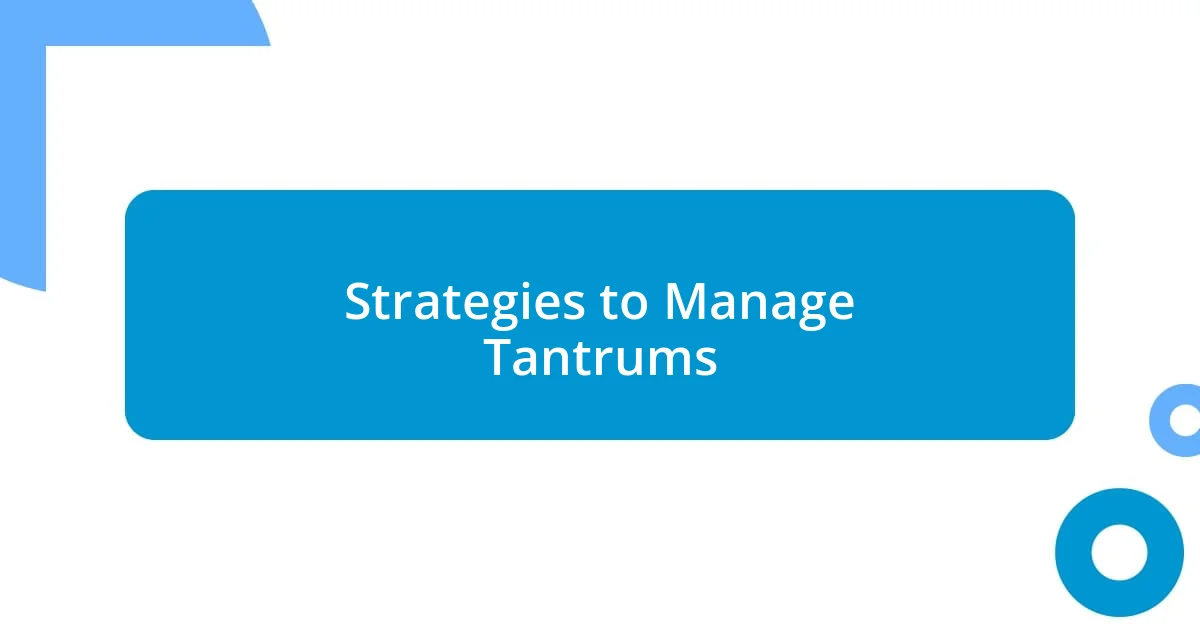
Strategies to Manage Tantrums
When it comes to managing tantrums, I’ve found that staying calm is crucial. The last time my toddler entered meltdown mode at the park, I took a deep breath and knelt down to her level. I asked her what was bothering her, and surprisingly, just my presence and that simple question seemed to diffuse the situation a bit. It made me realize that being a steady, calming force can really make a difference.
Distracting them is another effective strategy I’ve used. During a particularly stormy tantrum over a toy, I quickly grabbed a shiny new sticker and showed it to my child. The abrupt shift in focus took the edge off the chaos, demonstrating how sometimes redirecting their attention can turn the tide. Isn’t it fascinating how a little creativity can navigate some of the toughest emotional waters?
Setting clear expectations often helps prevent tantrums from even starting. I learned this lesson on a car ride when I explained we would be listening to her favorite songs, but only after a quick stop. Surprisingly, keeping her informed and setting those simple boundaries took the nagging anticipation out of our trip, making the ride much smoother. Isn’t it great how a little prep work can lead to a more peaceful environment?
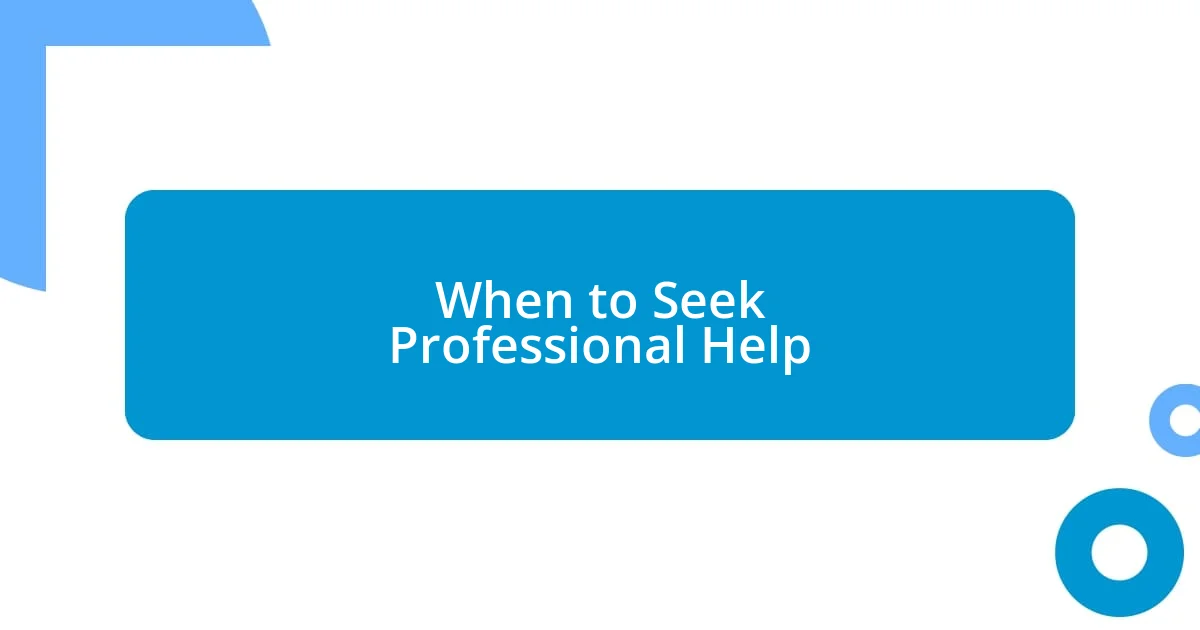
When to Seek Professional Help
When it comes to recognizing when to seek professional help, I’ve learned to trust my instincts as a parent. If tantrums become increasingly frequent or intense, to the point where they disrupt daily life, it may be time to consult a pediatrician or child psychologist. I remember feeling overwhelmed when my child would scream for an hour over what seemed like nothing at all—it left me questioning whether this was just “normal toddler behavior” or if there was something more at play.
Another important sign is if tantrums escalate to aggressive behavior, either towards themselves or others. Once, during a playdate, my little one hit a friend out of frustration, and it truly shook me. In moments like that, I realized aggression is not just a phase; it may indicate deeper emotional struggles. Seeking the help of a professional to navigate these emotions could make a world of difference for both child and parent.
Lastly, if you notice that your child’s tantrums are accompanied by other concerning symptoms, such as withdrawal from social interactions or significant mood changes, don’t hesitate to reach out for guidance. After facing a particularly tough week of tantrums alongside fewer playful moments, I found comfort in discussing these changes with a therapist. It’s a reminder that we don’t have to navigate these emotional challenges alone. Isn’t it reassuring to know that professional support is available to help us all understand the underlying currents of toddler behavior?
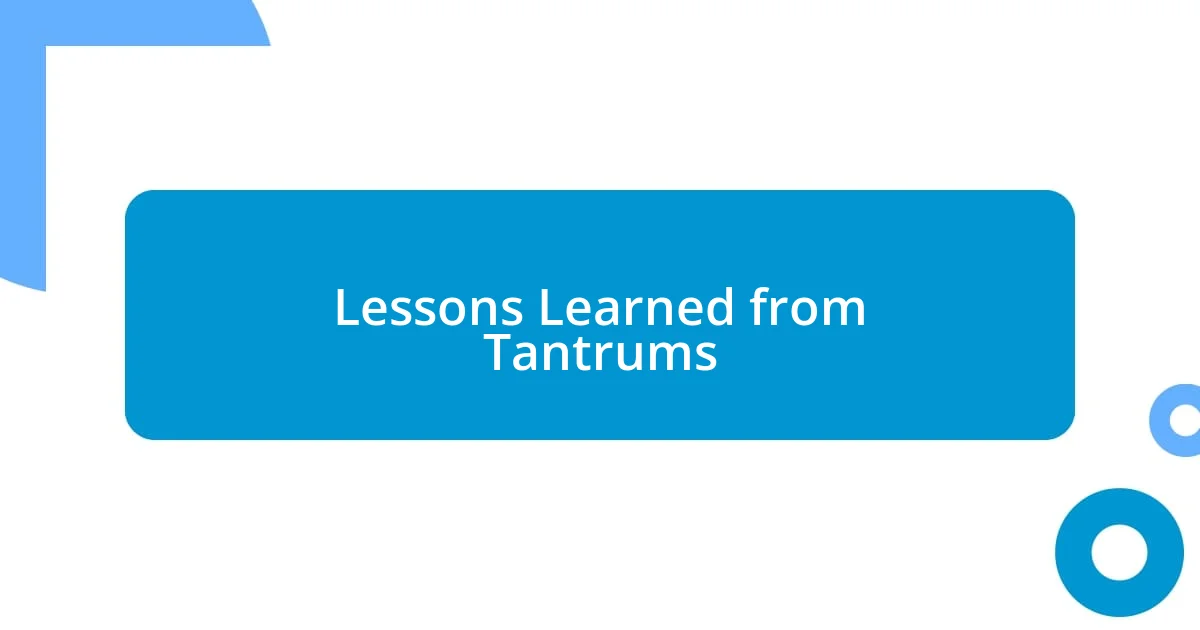
Lessons Learned from Tantrums
Lessons from toddler tantrums are often surprisingly profound. For example, I learned that these outbursts reflect not just frustration, but a genuine need for connection. I recall a moment when my child threw a fit at the grocery store, and as I held her close, I felt her tension ease. It dawned on me that her screaming was her way of saying, “I need you!”—a poignant reminder of how vital emotional support is during turbulent times.
Another key takeaway for me was understanding the importance of patience. One evening, during an epic battle over bath time, I almost lost my cool. But when I paused and remembered that her tears were tied to a feeling of losing control, I shifted my approach. Instead of a power struggle, I offered choices—“Do you want to hop in the bath or splash in the sink?”—which not only diffused the situation but also empowered her. Doesn’t it make you think about the little ways we can turn frustration into collaboration?
Lastly, I discovered that reflecting on these tantrums can lead to personal growth. After one particularly exhausting day, I spent time journaling my thoughts. I realized that my child’s meltdowns were often a mirror reflecting my own stress, reminding me to prioritize self-care. Have you ever noticed how our emotions can influence their behavior? It’s a humbling reminder that staying balanced ourselves is just as crucial in parenting as managing their tantrums.
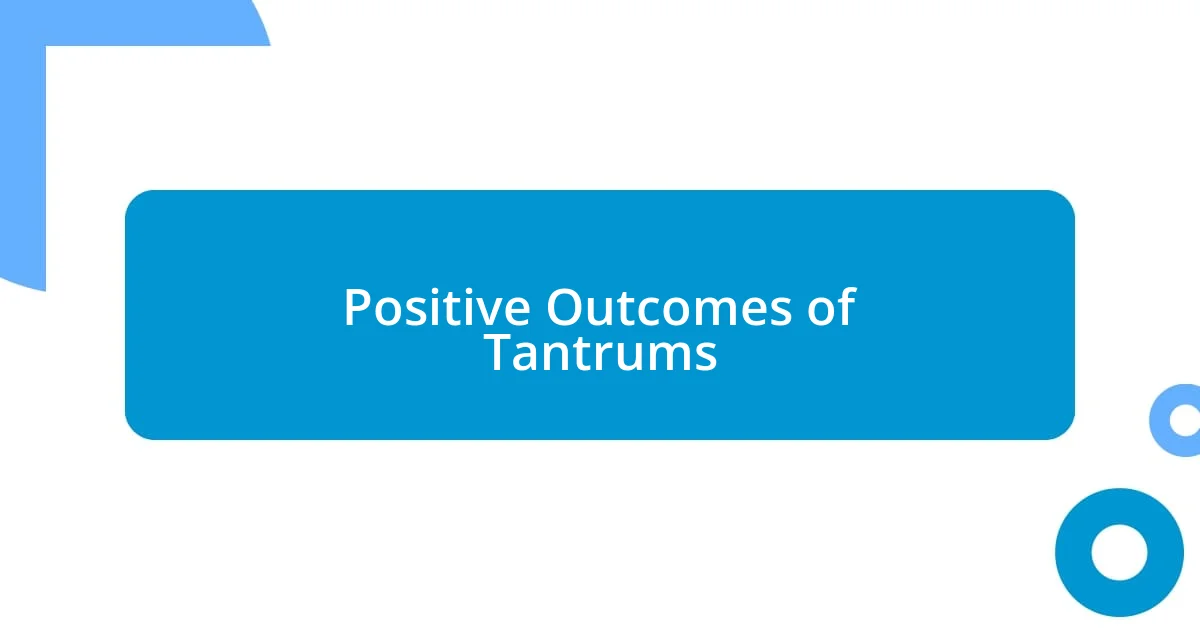
Positive Outcomes of Tantrums
Experiencing a toddler’s tantrum can turn into an unexpected lesson on emotional expression. I once sat on the floor of our living room, my child wailing over a lost toy. As chaos swirled around us, I realized this was a powerful moment—an opportunity for my child to practice expressing frustration. Watching her work through those big feelings right in front of me reminded me that tantrums can be an essential part of learning to communicate emotions.
Another positive outcome is the chance to build resilience, both for kids and parents. During one intense grocery store meltdown, I took a deep breath and focused on staying calm. I could feel the entire aisle watching us, but instead of feeling embarrassed, I chose to view this as a teaching moment. By remaining composed, I not only helped my child navigate the storm but also strengthened our bond. Isn’t it incredible how these chaotic moments can fortify our relationships when handled with grace?
Finally, I’ve found that tantrums pave the way for deeper connections with our children. After a particularly challenging day when my child exploded over something trivial, we had an open conversation later on. I asked him what made him so upset, and his heartfelt answer surprised me. He mentioned feeling unheard amid my distractions. This honesty not only opened my eyes to his feelings but also underscored the importance of mindfulness in our interactions. Have you ever had a moment like this, where a tantrum led to a breakthrough? It’s a reminder that these challenging experiences can spark meaningful dialogue about emotions and connection.

